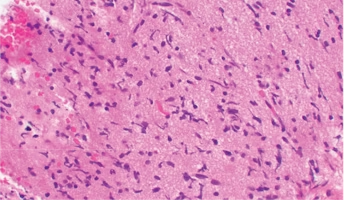Epigenetic Drivers in Diffuse Intrinsic Pontine Gliomas (DIPG)


Alexandros Tzatsos
CBTN Data
Backer
NIH RO1
Completed
About this
Project
The limited medical options for and low survival rate of patients with diffuse intrinsic pontine gliomas (DIPG) push medical researchers to find the genetic and epigenetic, the non-gene influences on gene expression, origins of this tumor type. Recent genome sequencing of DIPGs showed histone mutations found in 80% of cases. Mutations of histones, the proteins responsible for packing bundles of DNA together, result in structural changes throughout the entire genome. Using Whole Genome Sequencing and the Pediatric Brain Tumor Atlas, researchers are building maps of these histone mutations, resulting alterations, and their impact on the development of DIPG.
Ask The
Scientists
What are the goals of this project?
Researchers seek to use genetic and epigenetic, the non-gene influences on gene expression, analysis of DIPG to help better understand the role of protein-related mutations in the tumor’s growth.
What is the impact of this project?
Through gaining a better understanding of how DIPG develops and progresses at the genetic and protein level, researchers and clinical professionals hope to expand the currently limited medical options for patients with DIPG.
Why is the CBTN request important to this project?
Due to the limited number of DIPG cases available for study, access to the Pediatric Brain Tumor Atlas provides a robust dataset for analysis.
Specimen Data
The Children's Brain Tumor Network contributed to this project by providing access to the Pediatric Brain Tumor Atlas.




